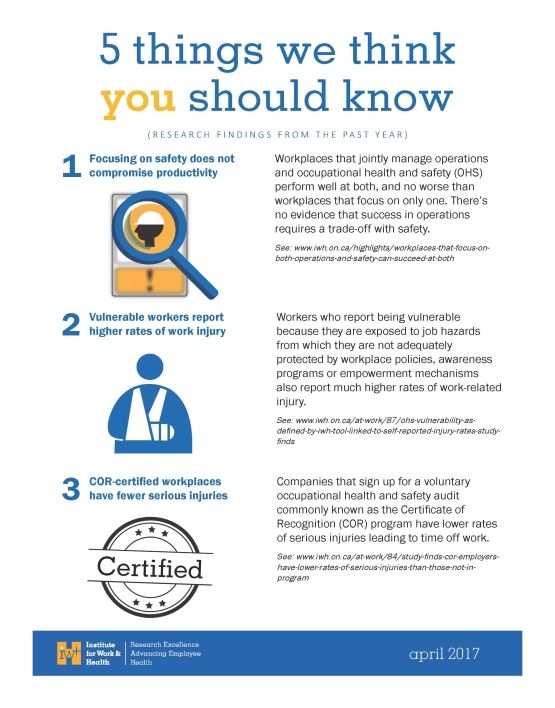
Focusing on safety does not compromise productivity
Workplaces that jointly manage operations and occupational health and safety (OHS) perform well at both, and no worse than workplaces that focus on only one. There’s no evidence that success in operations requires a trade-off with safety.

Vulnerable workers report higher rates of work injury
Workers who report being vulnerable because they are exposed to job hazards from which they are not adequately protected by workplace policies, awareness programs or empowerment mechanisms also report much higher rates of work-related injury.

COR-certified workplaces have fewer serious injuries
Companies that sign up for a voluntary occupational health and safety audit commonly known as the Certificate of Recognition (COR) program have lower rates of serious injuries leading to time off work.

Participatory ergonomics teams can have long-lasting effects
A hydro utility company is sustaining a 30-per-cent reduction in musculoskeletal disorders (MSDs) brought about by a participatory ergonomics team that was set up over a decade ago. The team was set up as part of a research project on MSD prevention.

Work-focused CBT is effective for workers with mental health conditions
Work-focused cognitive behavioural therapy (CBT) is effective in reducing the lost time associated with mental health conditions, while traditional CBT is not. Work-focused CBT addresses the specific difficulties workers face returning to their jobs.
